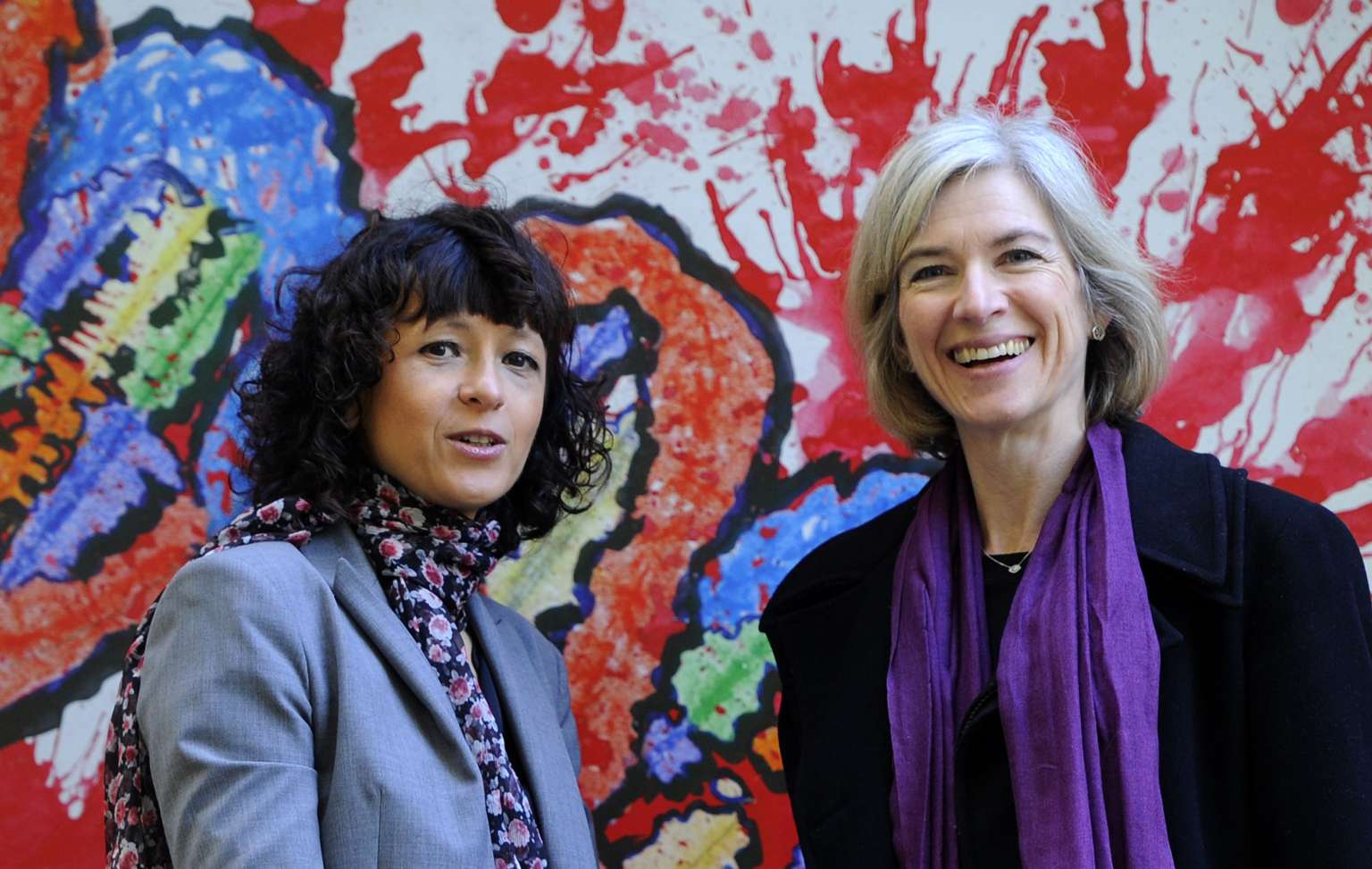British okay to genetic modification of embryos sparks 'designer babies' outcry
Sign up now: Get ST's newsletters delivered to your inbox

French genetics researcher Emmanuelle Charpentier (left) and US professor of Chemistry and of Molecular and Cell Biology Jennifer Doudna pose in San Francisco.
PHOTO: AFP
LONDON (AFP) - Britain's decision on Monday (Feb 1) to grant its first research licence to genetically modify human embryos raised almost immediate concerns it would mark the first step to the creation of "designer babies".
The decision, which made Britain one of the first countries in the world to grant this type of authorisation on one of science's new frontiers, followed months of deliberation by the British embryology regulator.
The Human Fertilisation and Embryology Authority (HFEA) said it had approved an application from Dr Kathy Niakan of the Francis Crick Institute for a new laboratory research licence "to include gene editing of embryos".
Campaigners were quick to criticise Monday's decision.
"This is the first step in a well mapped-out process leading to GM babies, and a future of consumer eugenics," said Mr David King, director of the watchdog group Human Genetics Alert.
A Unesco panel of scientists, philosophers, lawyers and ministers last year called for a halt to genetic "editing", warning of the danger of tampering with hereditary traits that could lead to eugenics.
Unesco's International Bioethics Committee (IBC) said gene therapy could be "a watershed in the history of medicine" and genome editing "is unquestionably one of the most promising undertakings of science for the sake of all humankind".
But the experts warned that genetic editing required "particular precautions" and raised "serious concerns".
There were particular grounds for concerns if the modifications "introduce hereditary modifications, which could be transmitted to future generations", they said.
But researchers explained that the embryos used will be spare ones donated by women receiving in-vitro fertilisation (IVF) treatment who do not need them.
Any modified embryos have to be destroyed within 14 days and cannot be implanted in a woman. The research will examine embryos in their first few days.
"Dr Niakan's proposed research is important for understanding how a healthy human embryo develops and will enhance our understanding of IVF success rates," said Mr Paul Nurse, director of the Crick Institute.
The project, which could start within months, would use CRISPR-Cas9, a technique allowing scientists to insert, remove and correct DNA within a cell.
The technique was developed by US chemistry professor Jennifer Doudna and Dr Emmanuelle Charpentier of France and could also be used to treat illnesses like sickle cell diseases, cystic fibrosis and some cancers.
Dr Charpentier said last year the technique was "a little bit like a Swiss knife that cuts DNA at a precise point and can be used to introduce a series of changes in the genome of a call or an organism".
A research paper published in April in which Chinese scientists described how they were able to manipulate the genomes of human embryos for the first time using CRISPR-Cas9 raised ethical concerns.
But others welcomed the ruling.
Darren Griffin, professor of genetics at the University of Kent, said the ruling was "a triumph for common sense".
"While it is certain that the prospect of gene editing in human embryos raised a series of ethical issues and challenges, the problem has been dealt with in a balanced manner," he said.
"It is a clear example how the UK leads the world not only in the science behind research into early human development but also the social science used to regulate and monitor it," he added.
Ms Sarah Norcross, director of Progress Educational Trust, a charity, said: "This decision by the HFEA is a victory for level-headed regulation over moral panic".


